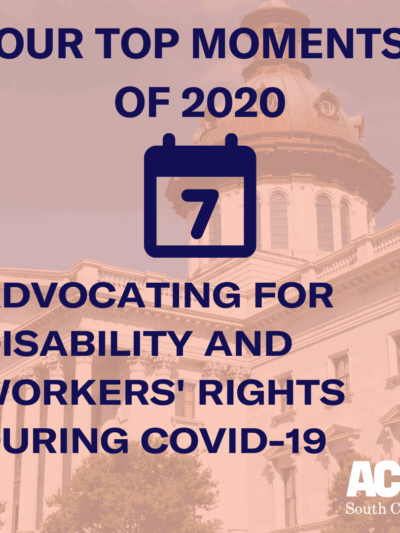News & Commentary
Jan 05, 2021
ACLU of South Carolina Praises Decision to End Charleston County’s 287(g) Agreement with U.S. Immigration and Customs Enforcement
The 287(g) program encourages widespread racial profiling, wastes millions of Charleston County taxdollars, and undermines relationships between local law enforcement and the communities they serve.
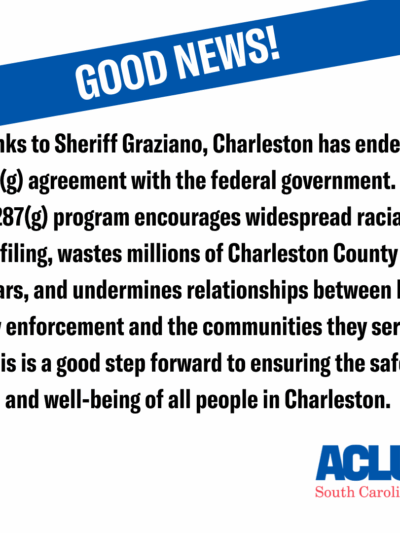
Jan 01, 2021
Our Guide for 2021
2020 magnified our failures as a society. Law enforcement continued to murder Black people. Workers were forced to choose between their health and a paycheck. The integrity of our elections was systematically attacked. The list goes on.
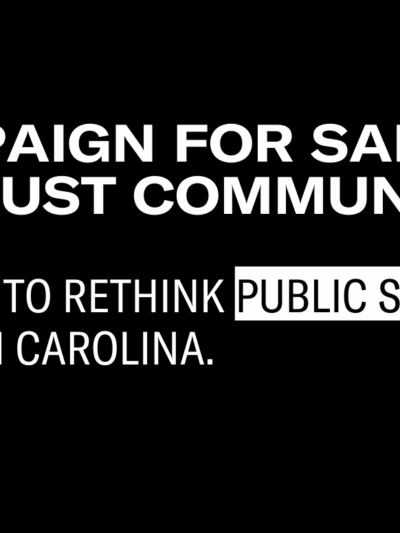
Dec 31, 2020
2020 Year in Review: Expanding Access to the Vote
Following our lawsuit, in September the South Carolina legislature passed legislation to allow all voters to cast absentee ballots because of the COVID-19 outbreak.
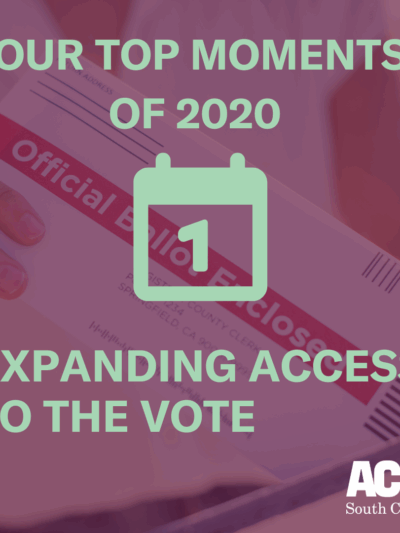
Dec 29, 2020
2020 Year in Review: Advocating to End the Torture of Incarcerated Pregnant People
We are thrilled that the South Carolina Legislature has ended this cruel and inhumane practice, greatly increasing the likelihood of positive outcomes for incarcerated parents and their newborn children.
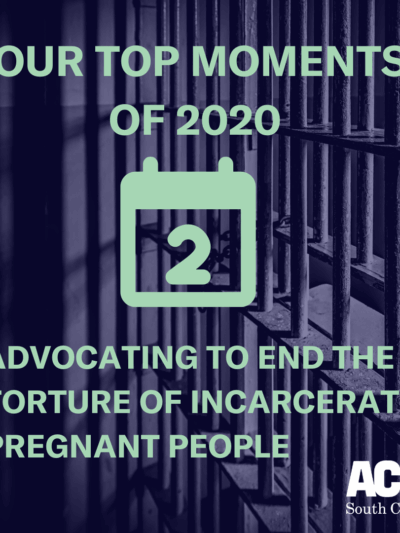
Dec 28, 2020
2020 Year in Review: Defending Access to the Polls on Election Day
For the past 50 years, the ACLU of South Carolina has worked to ensure access to the ballot. This year, in the face of one of the most consequential elections of our lifetime, we expanded this work to ensure that every vote counted.
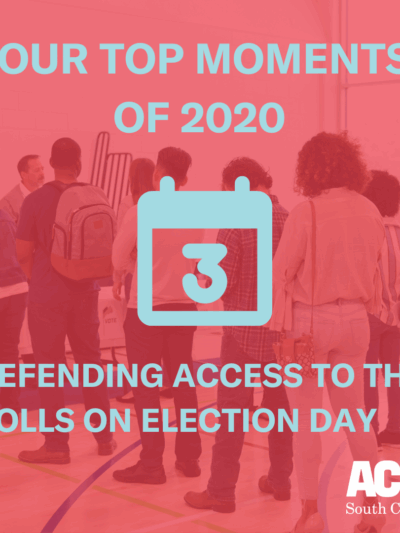
Dec 27, 2020
2020 Year in Review: Every Vote Should Count
The court order and the directive assured hundreds of voters that their votes would count.
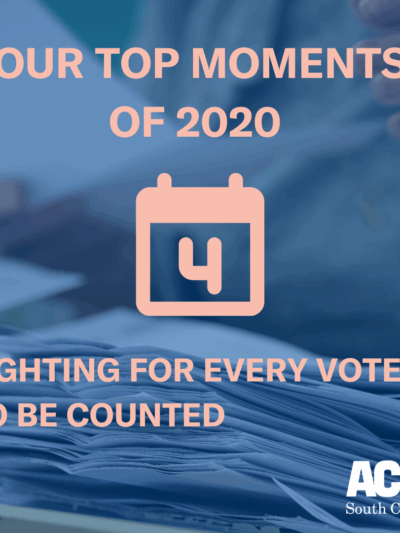
Dec 26, 2020
2020 Year in Review: Campaigning for Policing Reforms in the Charleston County Sheriff’s Race
Charleston County voters chose a platform that will address head-on the disproportionate burden our system places on Black, Brown, Indigenous, and poor people.
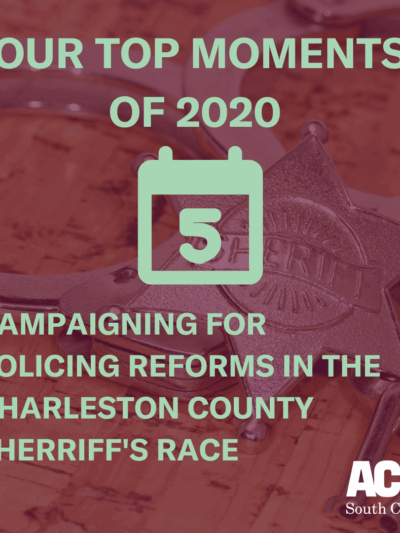
Dec 22, 2020
2020 Year in Review: Holding Police Accountable for Violence Against Protestors
There is a stark difference between the image and reality of law enforcement in South Carolina. Seven months after numerous law enforcement agencies brutalized people protesting police brutality in Charleston, the agencies still refuse to hold themselves accountable.
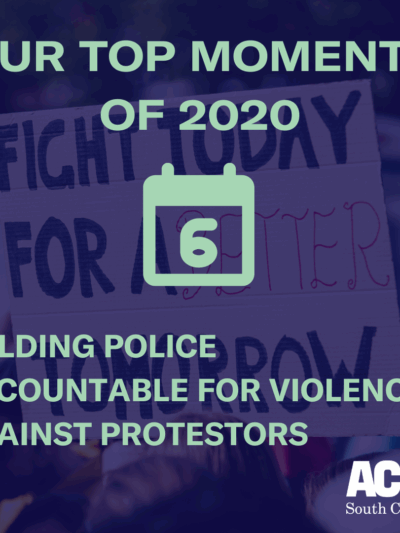
Stay Informed
Sign up to be the first to hear about how to take action.
By completing this form, I agree to receive occasional emails per the terms of the ACLU’s privacy statement.
By completing this form, I agree to receive occasional emails per the terms of the ACLU’s privacy statement.

